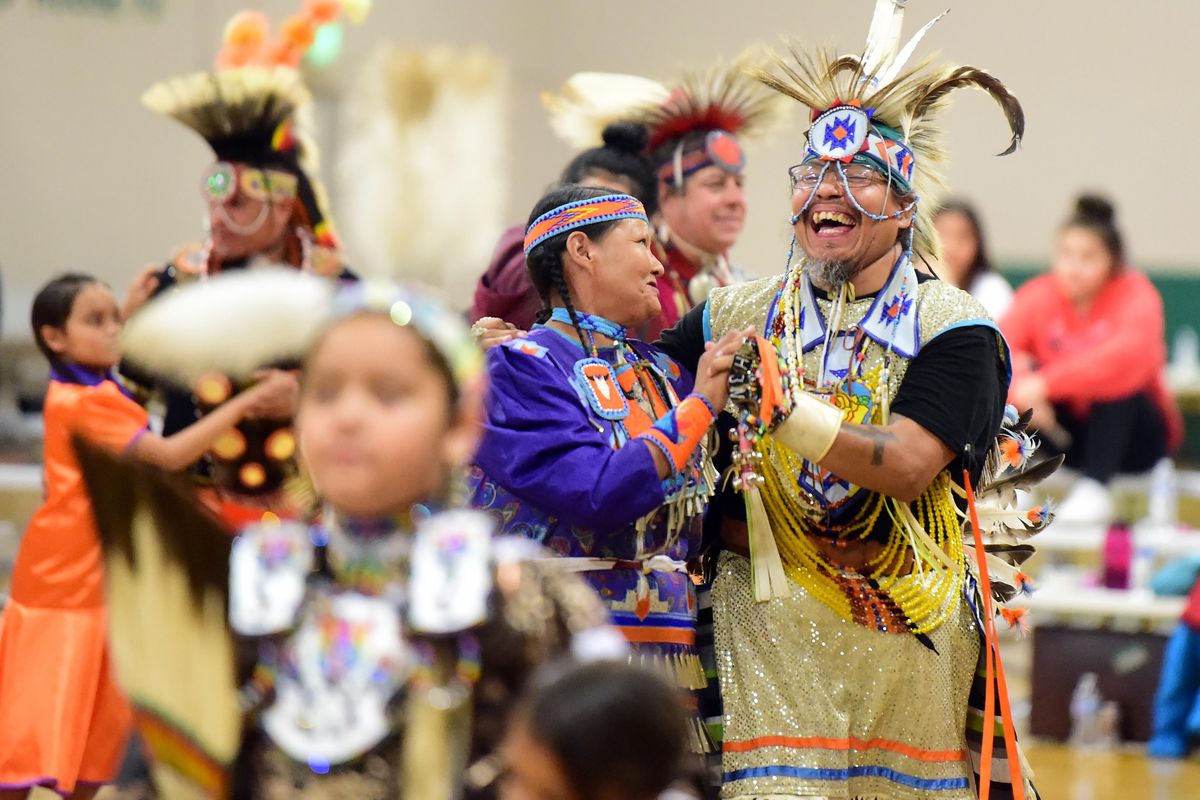Hundreds gather for Indigenous Peoples Day powwow in Spokane

An arched roof above a row of indoor basketball courts amplified the sound of drumbeats, while dancers young and old put on their best show and hundreds of others watched from the bleachers.
David Brown Eagle, a former vice chairman of the Spokane Tribal Business Council, marveled at how many people turned out for a powwow and potluck on this rainy Monday evening.
A few years ago, Native Americans in Spokane would not have celebrated this day. A few years ago, it was called Columbus Day. But in August 2016, the Spokane City Council voted to rename the holiday, joining other cities in recognizing the Italian explorer’s role in the slave trade and the spreading of disease to indigenous tribes.
“People don’t see Indigenous Peoples Day as a special day for native people because we have a lot of special days,” Brown Eagle said. “As time goes on, I think people will start to recognize it more, but there’s still that stigma around it.”
Iaitia Farrell, an Eastern Washington University student and member of the Standing Rock Sioux Tribe, was among those who danced during Monday’s powwow at the Warehouse sports center on North Hamilton Street.
Christopher Columbus, Farrell said, “represents a very ugly part of our U.S. history.” For native people, she said, it’s insulting to celebrate a man who led the brutal conquest of their ancestors.
“This day shows our perseverance, our resilience and our strength,” Farrell said. “We have pushed through over 500 years of systematic oppression and genocide, and the fact that we’re still here, able to have gatherings and celebrations like this, it’s absolutely phenomenal.”
Monday’s powwow was significantly larger than an Indigenous Peoples Day gathering last year at the Spokane Tribal Gathering Place, a plaza beside City Hall overlooking the Spokane River.
Brown Eagle, who recently retired from teaching in Spokane Public Schools, said the powwow was also an excellent way to pass along native traditions to younger generations.
“The things that we learn here,” he said, “they’re not going to teach it in public schools.”